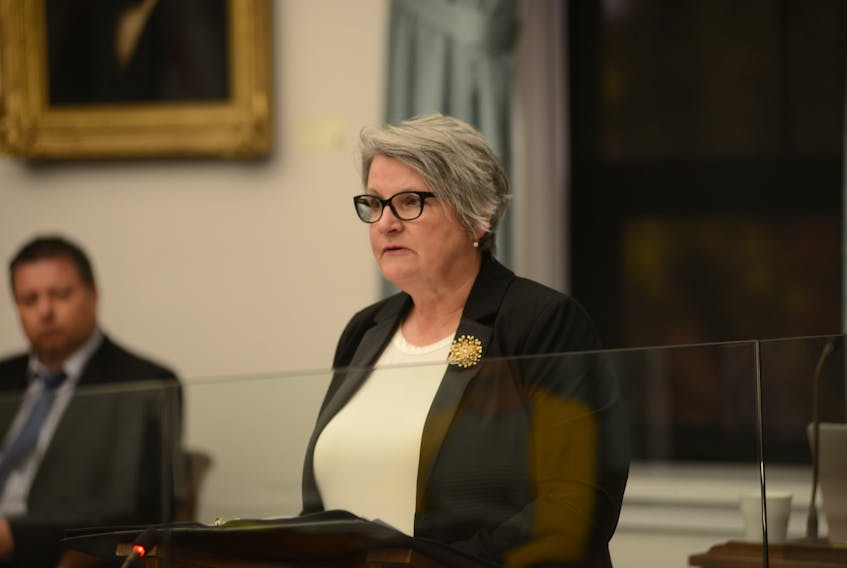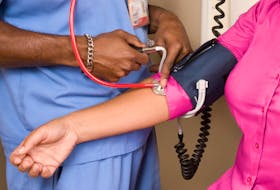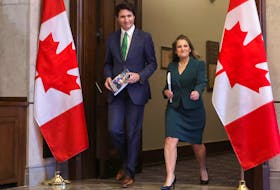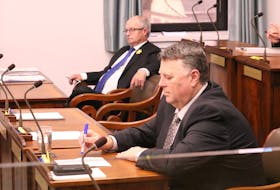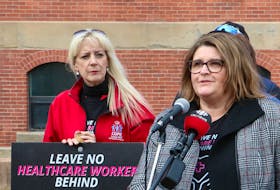I am no economist but I read that some credible institutions like the Canadian Centre for Policy Alternatives (CCPA) are giving us some positive vibes that the future is not necessarily doomed to disaster. The numbers seem alarming. The Canadian government is predicting an historic $343 billion deficit for 2020-21 resulting from its economic and stimulus plans to battle COVID-19. However, Prime Minister Justin Trudeau defended the government’s spending as a lifeline to Canadians battling to stay afloat.
The national debt is projected to climb to $1.2 trillion while the economy is expected to shrink by 6.8 per cent. The debt-to-GDP ratio is expected to rise from 31 per cent to 49 per cent because of emergency spending. That’s nothing compared to the over 100 per cent GDP ratio we experienced after the Second World War.
The government expects unemployment to hit 9.8 per cent this year, then fall to 7.8 per cent next year. However, this does not shatter the nerves of the Canadian government. The pandemic is revealing. The Parliament Budget Officer is projecting that P.E.I.’s projected 2020-21 deficit could run as high as $320 million. That should take the wind out of our sails, but some say not to worry. The federal government still holds the bulk of the debt load compared to the provinces. A report by the Fraser Institute tracking debt since 2008 shows that provincial debt is beginning to catch up.
However, all is not as bad as it may seem according to other sources, such as the CCPA. The pandemic is giving us a dramatic glimpse of the public resources we can marshal when necessary. With the province’s deficit numbers released this week and the federal numbers coming out last week, we are getting a clearer sense of what the fiscal picture will be.
While these deficit numbers may seem scary, the CCPA feels there is no need to fear taking on government debt at this moment. In fact, now is the time for governments to get behind the kind of large scale public spending that supports communities and invests in long-term public good.
CCPA offers some reasons why we shouldn’t fear this government debt. Borrowing costs for government are extremely low. Making public investments with even modest social and economic payoffs will leave us wealthier as a society (more than covering borrowing costs) compared to if we don’t make those investments. We also have an enormous backlog of highly-productive public investments that are badly needed in this country, like climate action, housing, child care, public transit, and tackling poverty.
Governments have very long time horizons over which to manage debts, unlike households. If people are going to make ends meet during the pandemic and in the economic aftermath, the only alternative to incurring public debt is piling more debt on already over-leveraged households. Our permanent institutions of government are much better positioned to bear debt than households, and we know from the experience of the Second World War (when Canada’s debt-to-GDP rose above 100 per cent) that we can emerge from a crisis and successfully manage high levels of government debt gradually while the economy grows.
We can tax the super-rich to help pay for public investments and service debts. We live in an incredibly wealthy society, but also an incredibly unequal one. That extreme inequality is a result of public policy choices, and we can make different ones moving forward. A few of the many policy tools available to us include a wealth tax, a wartime-style excess profits tax, and long overdue measures to crack down on tax havens.
CCPA says much of the public debt we are adding right now, we actually owe to ourselves. CCPA says that’s because one of the biggest purchasers of government debt right now is the Bank of Canada itself. When we are the people to whom money is owed, that opens up considerable possibilities to be flexible on repayment terms and timelines, and the choice can always be made to roll over this debt at maturity.
We are rich enough not only to weather this crisis, but also to strengthen our public services for the long term and emerge from COVID-19 into a “new normal,” where public well being is a top priority. That includes my dream of quality and affordable housing becoming a human right.
J.W. (Bill) Campbell is president of Kings Square Affordable Housing and Canada Microcredit Educators Group (CMEG).

